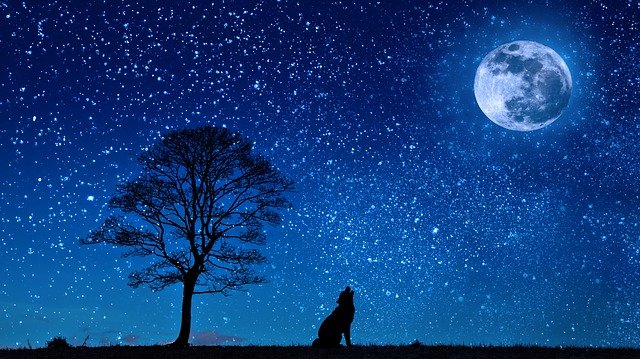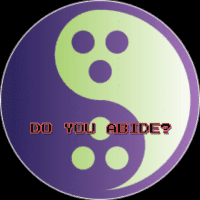Great Dudes of Literature: Jack London's 'The Night-Born'

This is my favorite part of the Jack London short story, The Night-Born. I had the chance to take classes with Dr. Earle Labor, the official Jack London biographer. Most people know about Call of the Wild, White Fang, or The Sea Wolf; few people know about the varied subjects he covered in his short stories.
The Night-Born
“When she was eighteen she married—a man who was going up to Juneau to start a restaurant. He had a few dollars saved, and appeared prosperous. She didn't love him—she was emphatic about that, but she was all tired out, and she wanted to get away from the unending drudgery. Besides, Juneau was in Alaska, and her yearning took the form of a desire to see that wonderland. But little she saw of it. He started the restaurant, a little cheap one, and she quickly learned what he had married her for..... to save paying wages. She came pretty close to running the joint and doing all the work from waiting to dishwashing. She cooked most of the time as well. And she had four years of it.
“Can't you picture her, this wild woods creature, quick with every old primitive instinct, yearning for the free open, and mowed up in a vile little hash-joint and toiling and moiling for four mortal years?
“'There was no meaning in anything,' she said. 'What was it all about! Why was I born! Was that all the meaning of life—just to work and work and be always tired!—to go to bed tired and to wake up tired, with every day like every other day unless it was harder?' She had heard talk of immortal life from the gospel sharps, she said, but she could not reckon that what she was doin' was a likely preparation for her immortality.
“But she still had her dreams, though more rarely. She had read a few books—what, it is pretty hard to imagine, Seaside Library novels most likely; yet they had been food for fancy. 'Sometimes,' she said, 'when I was that dizzy from the heat of the cooking that if I didn't take a breath of fresh air I'd faint, I'd stick my head out of the kitchen window, and close my eyes and see most wonderful things. All of a sudden I'd be traveling down a country road, and everything clean and quiet, no dust, no dirt; just streams ripplin' down sweet meadows, and lambs playing, breezes blowing the breath of flowers, and soft sunshine over everything; and lovely cows lazying knee-deep in quiet pools, and young girls bathing in a curve of stream all white and slim and natural—and I'd know I was in Arcady. I'd read about that country once, in a book. And maybe knights, all flashing in the sun, would come riding around a bend in the road, or a lady on a milk-white mare, and in the distance I could see the towers of a castle rising, or I just knew, on the next turn, that I'd come upon some palace, all white and airy and fairy-like, with fountains playing, and flowers all over everything, and peacocks on the lawn..... and then I'd open my eyes, and the heat of the cooking range would strike on me, and I'd hear Jake sayin'—he was my husband—I'd hear Jake sayin', “Why ain't you served them beans? Think I can wait here all day!” Romance!—I reckon the nearest I ever come to it was when a drunken Armenian cook got the snakes and tried to cut my throat with a potato knife and I got my arm burned on the stove before I could lay him out with the potato stomper.
“'I wanted easy ways, and lovely things, and Romance and all that; but it just seemed I had no luck nohow and was only and expressly born for cooking and dishwashing. There was a wild crowd in Juneau them days, but I looked at the other women, and their way of life didn't excite me. I reckon I wanted to be clean. I don't know why; I just wanted to, I guess; and I reckoned I might as well die dishwashing as die their way.”
Trefethan halted in his tale for a moment, completing to himself some thread of thought.
“And this is the woman I met up there in the Arctic, running a tribe of wild Indians and a few thousand square miles of hunting territory. And it happened, simply enough, though, for that matter, she might have lived and died among the pots and pans. But 'Came the whisper, came the vision.' That was all she needed, and she got it.
“'I woke up one day,' she said. 'Just happened on it in a scrap of newspaper. I remember every word of it, and I can give it to you.' And then she quoted Thoreau's Cry of the Human:
“'The young pines springing up, in the corn field from year to year are to me a refreshing fact. We talk of civilizing the Indian, but that is not the name for his improvement. By the wary independence and aloofness of his dim forest life he preserves his intercourse with his native gods and is admitted from time to time to a rare and peculiar society with nature. He has glances of starry recognition, to which our saloons are strangers. The steady illumination of his qenius, dim only because distant, is like the faint but satisfying light of the stars compared with the dazzling but ineffectual and short-lived blaze of candles. The Society Islanders had their day-born gods, but they were not supposed to be of equal antiquity with the..... night-born gods.'
“That's what she did, repeated it word for word, and I forgot the tang, for it was solemn, a declaration of religion—pagan, if you will; and clothed in the living garmenture of herself.
“'And the rest of it was torn away,' she added, a great emptiness in her voice. 'It was only a scrap of newspaper. But that Thoreau was a wise man. I wish I knew more about him.' She stopped a moment, and I swear her face was ineffably holy as she said, 'I could have made him a good wife.'
“And then she went on. 'I knew right away, as soon as I read that, what was the matter with me. I was a night-born. I, who had lived all my life with the day-born, was a night-born. That was why I had never been satisfied with cooking and dishwashing; that was why I had hankered to run naked in the moonlight. And I knew that this dirty little Juneau hash-joint was no place for me. And right there and then I said, “I quit.” I packed up my few rags of clothes, and started. Jake saw me and tried to stop me.
“'What you doing?” he says.
“'Divorcin' you and me,' I says. 'I'm headin' for tall timber and where I belong.'”
“'No you don't,' he says, reaching for me to stop me. 'The cooking has got on your head. You listen to me talk before you up and do anything brash.'
“But I pulled a gun-a little Colt's forty-four—and says, 'This does my talkin' for me.'
“And I left.”
In this snippet, we can see a range of human conditions: hopes, desires, and fears. These aspects are things that most readers can relate with. London was writing in the early 1900s, as such, his writings reflect the cultural mores of the 19th century. Even so, this short story is remarkable for it's blatant pro-feminism. We have to keep in mind that London was writing pre-19th Amendment. Women didn't have the right to vote, so pulling a gun to declare yourself divorced was not common.
Much like the woman of this short story, many of Jack London's characters are auto-didactic learners. He makes many poignant observations about the differences in education and appreciation between those who have money for school and those who don't. Considering the horrific state of the education sham-system, I imagine his vitriol would only compound.
Resources
"Got to set down, take a rest on the porch."
"Memories and elephants are playing in the band," — Creedence Clearwater Revival
Take it easy, Dudes!
Follow me on Twitter: @cosmo_crator :)-~
Want some CBD Oil?
Cosmo's Recent Posts
- The Death Talk [2]: Oh So, You're Contemplating Suicide? Don't Be A Douche. [The Dude's on Vaca Here's Walter]
- The Bowling Talk [2]: Living Means Dealing With the Strikes and Gutters
- The Bowling Talk [1]: Dudeists Abide the Strikes and Gutters
- The Deep Shit Talk [2]: Naysayers Gonna Nay Like the Sheep That They Are
- The Deep Shit Talk: Deniers Gonna Deny
- The Perspectives Talk
- The Virtues Talk
- The Vibes Talk [1]: Ever Get the Feeling that Something Ain't Right?
- The Death Talk
Cosmo's Cannabis Posts

- The Cannabis Talk
- A Stoner on the Oregon Trail
- Wake Me Up Before You Stone Me
- The Conditions Talk: Schedule 1 Narcotics, Anyone?
- Response to @erikaharris' "A Native View of Cannabis Dosing"
- The Cannabis Talk [2]: The International Call for Decriminalization
[NOTE: Click here for an archive of all The Talks]